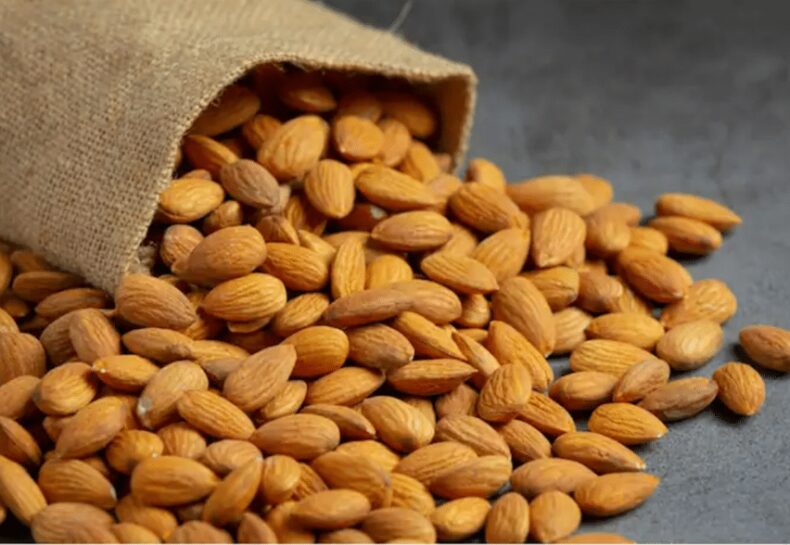In a nutshell
- Eating almonds before meals may improve blood sugar levels according to recent studies.
- A premeal load 30 minutes before leads to a reduction in measures of pre-diabetes.
- Studies also revealed a decrease in overall glycemia.

New research revealed that eating a handful of almonds before each meal helps improve blood sugar levels, especially in people with pre-diabetes. The two studies, one conducted over three days and the other over three months demonstrated the upsides of snacking on nuts linked to blood sugar control for Asians with pre-diabetes and overweight/obesity by reversing prediabetes, or glucose intolerance, to normal blood sugar rates. The positive effects were found in roughly one-quarter (23.3%) of the people examined in the research.
A handful to reverse blood sugar levels
In one study, published in Clinical Nutrition ESPEN, 60 participants ate 20 g(0.7 oz) of almonds, a little less than a handful, 30 minutes before breakfast, lunch, and dinner throughout the course of the research. The results showed a significant reduction in measures of pre-diabetics. The researchers asserted that diabetes could be nipped in the bud by better glucose management over time through dietary choices like including almonds.
The results also showed a significant drop in body weight, Body mass index, waist circumference (WC), subscapular and suprailiac skinfolds, and improved handgrip strength.
A decrease in overall glycemia
The other study, published in the European Journal of Clinical Nutrition, provided further evidence that almonds may aid in the treatment of prediabetes, with researchers observing an 18% dip in hyperglycemia levels, indicating improved blood sugar management.
“Our findings suggest that almonds may be a major differentiator in regulating blood glucose levels as part of a dietary plan.” These findings show that a small portion of almonds before each meal can significantly improve glycemic control in Asian Indians in India with prediabetes in just three days “, said Dr. Anoop Misra, Professor and Chairman of the Fortis-C-DOC Centre of Excellence for Diabetes, Metabolic Diseases, and Endocrinology, the study’s lead author.
Both studies were randomized controlled trials funded by the Almond Board of California.
How to sneak more almonds into the diet
Studies have shown time and time again that almonds are a rich source of nutrients, and one cannot afford to ditch them from a healthy diet. One serving of almonds offers about 165 calories, 6 grams of protein , 14 grams of fat (8% monounsaturated, 15% polyunsaturated, and 5% saturated), 6 grams of carbohydrate, and 3 grams of fiber. They can be consumed raw, roasted, or by tossing them into a variety of recipes. Here are a few ways to sneak more almonds into your diet.
- Almond Butter: Add a cup of almonds into a blender and mix it until it turns into a paste. Spread them on your toast or add them to your smoothies.
- Almond Flour:If you enjoy baked goods, you could make delicious cookies and cakes with almond flour.
- Almond Milk: Almond milk is a brilliant way to tap into the nutritious benefits of the nut. It is also super easy to make. Soak a glass of almonds in water and keep them overnight. Blend them in a processor and strain. It is also a great substitute for cow milk in a vegan diet.













